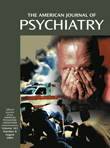Abstract
OBJECTIVE: The authors sought to determine whether integrated mental health services or enhanced referral to specialty mental health clinics results in greater engagement in mental health/substance abuse services by older primary care patients. METHOD: This multisite randomized trial included 10 sites consisting of primary care and specialty mental health/substance abuse clinics. Primary care patients 65 years old or older (N=24,930) were screened. The final study group consisted of 2,022 patients (mean age=73.5 years; 26% female; 48% ethnic minority) with depression (N=1,390), anxiety (N=70), at-risk alcohol use (N=414), or dual diagnosis (N=148) who were randomly assigned to integrated care (mental health and substance abuse providers co-located in primary care; N=999) or enhanced referral to specialty mental health/substance abuse clinics (i.e., facilitated scheduling, transportation, payment; N=1,023). RESULTS: Seventy-one percent of patients engaged in treatment in the integrated model compared with 49% in the enhanced referral model. Integrated care was associated with more mental health and substance abuse visits per patient (mean=3.04) relative to enhanced referral (mean=1.91). Overall, greater engagement was predicted by integrated care and higher mental distress. For depression, greater engagement was predicted by integrated care and more severe depression. For at-risk alcohol users, greater engagement was predicted by integrated care and more severe problem drinking. For all conditions, greater engagement was associated with closer proximity of mental health/substance abuse services to primary care. CONCLUSIONS: Older primary care patients are more likely to accept collaborative mental health treatment within primary care than in mental health/substance abuse clinics. These results suggest that integrated service arrangements improve access to mental health and substance abuse services for older adults who underuse these services.



